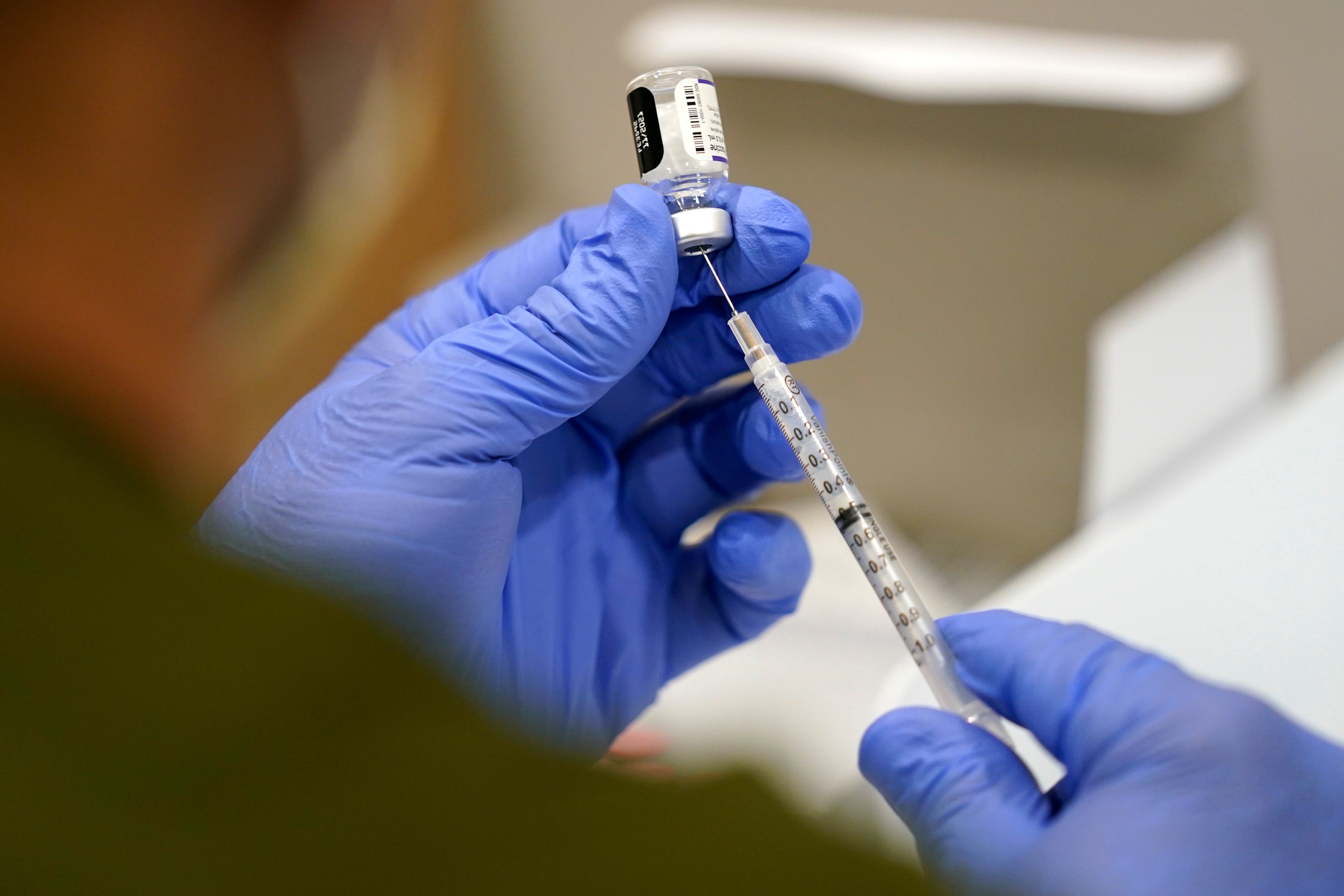Wait before Covid booster jabs ‘could be cut to five months’ to speed up rollout
Delay between doses could reportedly be cut from six months to five

Your support helps us to tell the story
From reproductive rights to climate change to Big Tech, The Independent is on the ground when the story is developing. Whether it's investigating the financials of Elon Musk's pro-Trump PAC or producing our latest documentary, 'The A Word', which shines a light on the American women fighting for reproductive rights, we know how important it is to parse out the facts from the messaging.
At such a critical moment in US history, we need reporters on the ground. Your donation allows us to keep sending journalists to speak to both sides of the story.
The Independent is trusted by Americans across the entire political spectrum. And unlike many other quality news outlets, we choose not to lock Americans out of our reporting and analysis with paywalls. We believe quality journalism should be available to everyone, paid for by those who can afford it.
Your support makes all the difference.The delay between a second dose of the Covid-19 vaccine and a booster could be cut from six months to five under plans reportedly being considered to speed up the rollout of third doses.
Boris Johnson said the time period between jabs was an “extremely important point” and stressed the need to “keep going as fast as possible” to deliver booster vaccines.
A media blitz is to be launched to encourage people to take up the booster shots, which ministers hope will drive up demand which has so far failed to match the enthusiasm of the initial vaccination programme.
Government officials and ministers said the time interval between doses was a matter for the experts on the Joint Committee on Vaccination and Immunisation (JCVI).
But The Guardian said Downing Street sources confirmed the option was being examined, while The Daily Telegraph said the JCVI was showing an interest in the idea of giving booster doses a month early.
Former health secretary Jeremy Hunt said: “Does it really matter when it’s only nine weeks until the Christmas holidays if someone has their booster jab after five months?
“And should we not look at whether there should be flexibility in that decision so we can get more people in more quickly for their booster jabs?”
During a visit to Northern Ireland, the prime minister said: “On the issue of timing, all I will say is I think we just need to keep going as fast as possible.”
Mr Johnson stressed that, unlike the early stages of the vaccine rollout, there were no problems with supply of doses, instead “it’s a demand issue”.
Speaking on Friday, the care minister told Sky News: “The JCVI look at all the data. They’ve advised us six months. Of course they continually look at the data but they are the only people who can really answer this question.
“If they advise us, our job then would be to get ready to do whatever they say. But at the moment it is six months. It is not unknown, the JCVI have changed over periods of time and have reacted.”
In a sign that demand may be picking up, Health Secretary Sajid Javid said a record 234,000 booster vaccine bookings were made on Wednesday.
“Getting your booster when offered is vital to keep you protected from Covid-19 over winter,” he said. “I urge everyone to book theirs as soon as eligible.”
A booster shot of the vaccine developed by Pfizer and BioNTech has a dramatic effect, the firms claimed after a trial.
In the trial, a booster dose given to patients who had the initial two jabs showing a relative vaccine efficacy of 95.6 per cent when compared to those who did not receive a booster.
The Prime Minister said the findings, which have not yet been peer reviewed, were “great results”.
The push to encourage vaccine take-up came as the daily number of cases reported in the UK surpassed 50,000 for the first time since mid-July.
But Mr Johnson is continuing to resist calls from health leaders for tighter Covid restrictions despite the rising levels of infections.
The Prime Minister acknowledged the numbers were “high” but said they were “within the parameters” forecast by scientists advising the Government.
His comments followed calls from the NHS Confederation and the British Medical Association (BMA) for ministers to activate their winter Plan B for England amid fears the health service could be overwhelmed.
BMA council chair Dr Chaand Nagpaul said the refusal to introduce supplementary measures - including Covid passports, mask-wearing in crowded public spaces and a return to working from home - amounted to “wilful negligence”.
Join our commenting forum
Join thought-provoking conversations, follow other Independent readers and see their replies
Comments